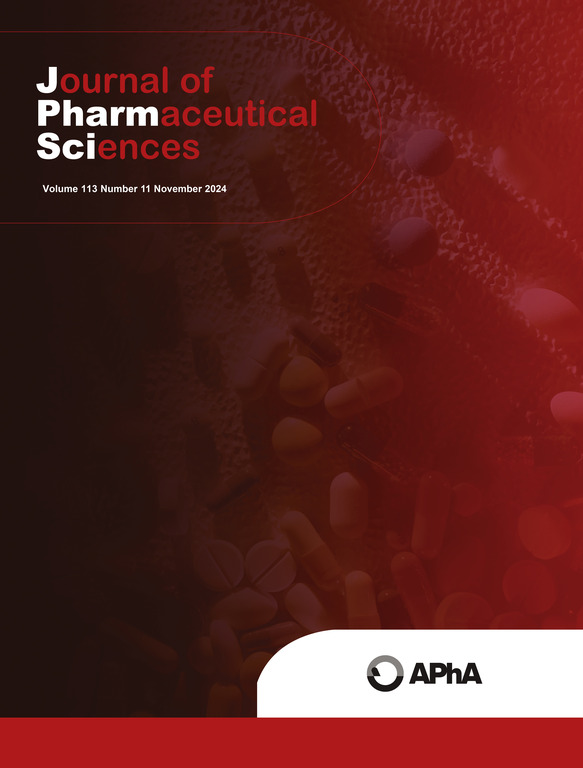Biowaiver monographs for immediate-release solid oral dosage forms: Lemborexant
IF 3.7
3区 医学
Q2 CHEMISTRY, MEDICINAL
引用次数: 0
Abstract
Lemborexant is a dual orexin receptor antagonist assigned to class II of the Biopharmaceutics Classification System (BCS). Thus, the ICH M9 Guideline excludes immediate-release (IR) solid oral dosage forms containing lemborexant from BCS-based biowaivers, irrespective of their in vitro dissolution behavior. By contrast, classification of lemborexant according to the refined Developability Classification System (rDCS) falls into class I, indicating few biopharmaceutics risks. Customized rDCS investigations identify dissolution as the main risk factor, in line with clinical data in humans which suggest that the absorption of lemborexant is limited neither by solubility nor by permeability. Instead, any risks lie in dissolution. Analysis by the rDCS coupled with biorelevant dissolution testing thus provides a way forward for manufacturers to mitigate the risks associated with changes in formulation or introduction of a generic version prior to running clinical bioequivalence (BE) studies. As a way forward regarding biowaivers for lemborexant and similar cases, where justifying BE based on the current BCS-based approach is not possible, a four-step pathway towards establishing BE virtually could be adopted as follows: (i) rDCS analysis to identify critical bioavailability attributes, (ii) comparative (biorelevant) dissolution testing, (iii) Physiologically Based Biopharmaceutics Modeling (PBBM), and (iv) virtual BE assessment.
速释口服固体制剂的生物豁免专论:Lemborexant.
伦博雷沙坦是一种双重奥曲肽受体拮抗剂,属于生物制药分类系统(BCS)的第二类。因此,无论其体外溶出行为如何,《ICH M9 指南》都将含有伦博雷生的速释(IR)口服固体制剂排除在基于 BCS 的生物豁免之外。与此相反,根据改进的可显影性分类系统(rDCS)对伦博雷康进行的分类属于 I 类,表明生物制药风险很小。定制的 rDCS 调查发现,溶解是主要的风险因素,这与人体临床数据一致,表明 Lemborexant 的吸收既不受溶解度的限制,也不受渗透性的限制。相反,任何风险都在于溶解。因此,在进行临床生物等效性(BE)研究之前,rDCS 分析与生物相关溶出度测试相结合,为生产商提供了一条降低制剂变化或引入仿制药相关风险的途径。在不可能根据目前基于生物相容性标准的方法证明生物等效性的情况下,可采用以下四步方法来确定生物等效性:(i) rDCS 分析以确定关键的生物利用度属性,(ii) 比较(生物相关)溶出试验,(iii) 基于生理学的生物药剂学建模 (PBBM),(iv) 虚拟生物利用度评估。
本文章由计算机程序翻译,如有差异,请以英文原文为准。
求助全文
约1分钟内获得全文
求助全文
来源期刊
CiteScore
7.30
自引率
13.20%
发文量
367
审稿时长
33 days
期刊介绍:
The Journal of Pharmaceutical Sciences will publish original research papers, original research notes, invited topical reviews (including Minireviews), and editorial commentary and news. The area of focus shall be concepts in basic pharmaceutical science and such topics as chemical processing of pharmaceuticals, including crystallization, lyophilization, chemical stability of drugs, pharmacokinetics, biopharmaceutics, pharmacodynamics, pro-drug developments, metabolic disposition of bioactive agents, dosage form design, protein-peptide chemistry and biotechnology specifically as these relate to pharmaceutical technology, and targeted drug delivery.

 求助内容:
求助内容: 应助结果提醒方式:
应助结果提醒方式:


